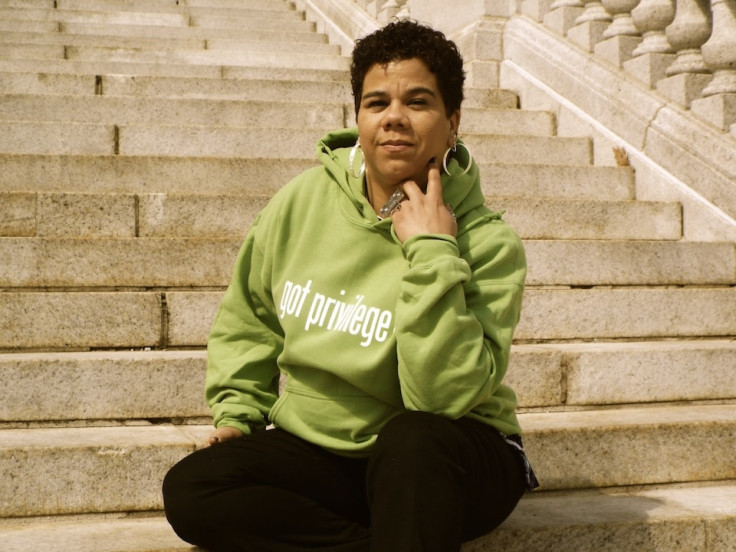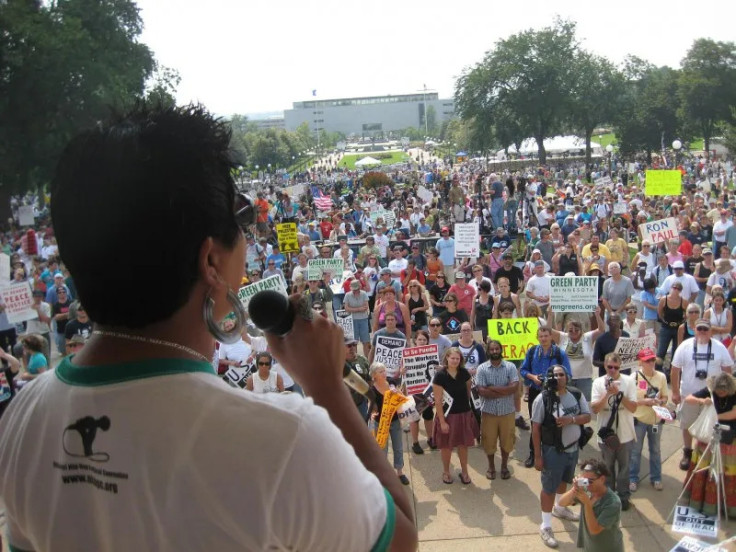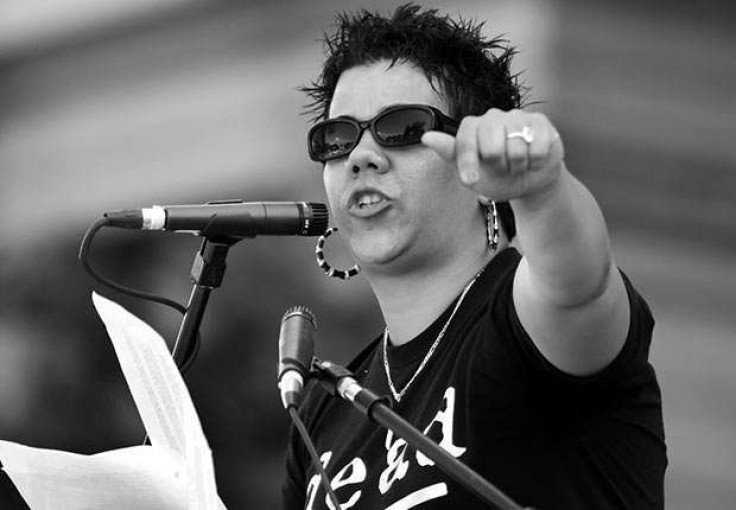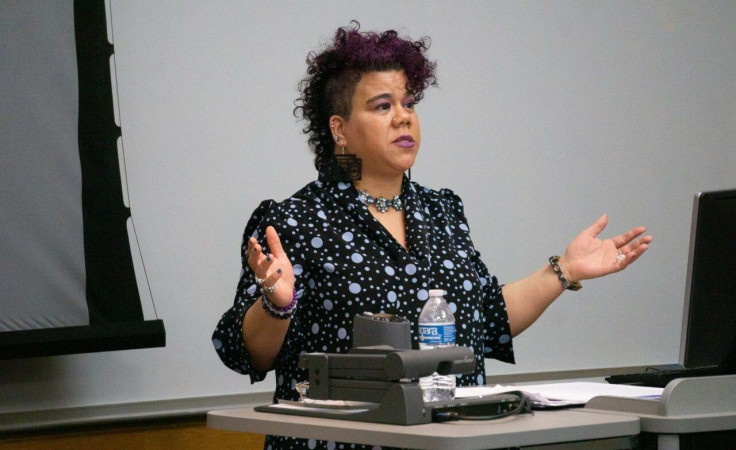This content is part of The Latin Times' first-ever Special Thematic Week focusing on the rise of Afro Latinos, an identity that represents 10% of all Hispanics and Latinos who live in the U.S., according to figures from Pew Research Center. Discover more articles and interviews we've prepared that explore Afrolatinidad, an idea that sits on the frontier of two minorities (Latinos and African Americans) with all the richness, possibilities and challenges that entails.

Rosa Clemente, 41, has definitely been on the ground. An award-winning activist, political commentator, and independent journalist, she made history in 2008 as the first Afro Latina to run for vice president on the Green Party ticket.
As a journalist, her work has led her to cover everything from Black Lives Matter to the #MeToo movement, and to organize a group of young latinx media makers to travel to Puerto Rico to report news about the Hurricane María destruction from a political perspective.
One of her most notable contributions is her article "Who is Black?", written in 2001, where she described the challenges of being a black Puerto Rican in the U.S.
Now, while she is completing her Ph.D. in Afro American Studies at the University of Massachusetts Amherst, she is focused on developing a new organization, which had its origins in 2020 as the Black Diasporic Organizing Project, a nonprofit dedicated to combating anti-Blackness within the wider Latino community.
Its new name is Black Latinx Media Collective. "The goal is to build a new framework for journalism, which would be emancipatory," she explains to The Latin Times. The following interview has been edited for length and clarity.

How is your relationship with the term Afro Latina?
I myself don't use that word. If I'm talking about myself, I'll say I'm a black Puerto Rican. I don't get mad if somebody uses the terms Afro Latino or wants to invite me to speak about it. But when I do write or speak from my perspective, I say I'm a black Puerto Rican.
Why do you prefer to use Black Puerto Rican?
Because Afro is not a race and neither is Latino, Latina or Latinx. Those are not races, they're not ethnicities. People even think Afro really refers to a hair style, you know? But, I think that term puts it in the context of just culture, and that doesn't really have a politic to that. I'm seeing a hyper focus on food, dance and skin color, you know, and I kind of reject all of that.
Where should the focus be regarding Afro or Black Latino identities?
The thing in the United States -there is- the one drop-rule, which means one-drop of black blood makes you black. In Latin America, it's the opposite. Whatever Latin American means to people is to not talk about race, you know? So, I think it should be on more and more people saying they're indigenous and they're black. Until very recently, there was a whole rejection of blackness. Now, I would say in the last ten years, we've seen an explosion of people knowing that they're racially black and embracing that. And everywhere from Brazil to Mexico, people have joined countries like Cuba, Dominican Republic, Haiti that have always had their blackness more present.

How was it in your Puerto Rican community?
The thing is with Puerto Ricans, we have a relationship with African American people that's stronger because we're both second class citizens, you know? It's a little easier to migrate here, but then we're met with the same conditions and violence against our bodies as African Americans. Here, the problem is many people see what politics as a phenotype looks like, and it's not that I reject a phenotype, but then you get into a trickier space where, unfortunately, a lot of young people are questioning someone like me because I'm light skinned, and and I'm like, well, would you question my friend whose half white, who's lighter than me? They're like: no.
So why would they question you?
I think there's an overemphasis on us (Latinos) in this country, the 60 million of us, that we are anti black people. It's like, no, the whole world is anti-black. Don't put that on a population because it's also a strategy of dividing and conquering. So, it's good that it (Afro o Black Latinidades) is being recognized. The problem is that it's also being taken away from politics. It's like: 'Let me talk about my hair all day, and I'm blacker than black, and that's it.' I'm like, that's not what I do. Like we got to question as well. Like, why are we now the community that's being scapegoated in immigration and how is it even playing out right now? Like it is disturbing to see a rapper like 50 Cent, a huge voice, to say he's going to vote for Trump because of all the migrants in New York.
How would you describe the current political scenario as we approach the 2024 elections?
So, Latino and African American men born in this country, they're starting to pull for Donald Trump, and it's crazy because for the most part, in New York City, everybody there has a tie to the Caribbean mostly. So, maybe their family didn't migrate, but I'm sure there was a time that his early family migrated and came up to the north. The right is really good at taking an issue that divides people, you know? And I think Donald Trump is going to be president with whoever's rolling, you know, because this country is crazy right now. And 75 million people already voted for him. This is why we're beginning to see an escalation of all types of violence in our communities, especially against black and brown women in the United States of America.

Have you observed an increase in the participation of Afro Latinos in politics?
What's happening is that many young people, African-American, Latino young people, immigrant young people, are done with both parties. So what's going to happen is voter turnout is going to be less. During Hillary Clinton's election, some people voted down the ballot, not for president. In Michigan, 64,000 people didn't vote for Clinton, and that's why she lost, even though she got the popular vote. Right now, there's a younger generation that is angry as they should be. We are now seeing three wars. Biden, the president who promised that he would never do what Trump did at the border, is not only doing that, it's worse. There is the climate catastrophe and student loan debts.
So younger people, they're like, fuck it. And I think it's really, really important to underscore that, with what's going on in Gaza, those are African American, and Latinos supporting Palestinian people. You have daily protests happening, rejecting Biden's policies. They're not going after Trump, because the mistake is to go after him. Nothing works. He could get convicted and still run for the president of the United States. If the Green Party had it together, we probably could run somebody. But it's too late now. And unfortunately, the Green Party just has no infrastructure. It doesn't know how to deal with race, you know. So we definitely had a defining moment, but that's done. And if Trump wins, he already said what was going to do. If he loses, you have this mob of white people who are, you know, nationalists and Nazis, Proud Boys,. There's going to be violence again.
Afro Latinos @ LatinTimes:
Besides Rosa Clemente, The Latin Times interviewed other specialists and Afro Latinos from different cities and backgrounds:
Mika Kenyah, an Afro-Latina comedian striving to "undo decades of generational trauma" through humor, shares her personal journey of embracing her African and Peruvian Indigenous features, breaking stereotypes, and ultimately feeling proud of her heritage.
Alejandro Villapando is an academic expert focused on the intersections of Black, Indigenous, and Central American studies at California State University. He explores the history of the African diaspora in the American continent and the significance the term 'Afro Latino' holds.
Cid Wilson is an Afro-Latino advocate working to enhance Hispanic inclusion in employment and governance. He discusses his journey as a prominent voice in the Latino community and his current role as CEO of the Hispanic Association on Corporate Responsibility.
Samantha Green is an Afro-Latina actress, model, dancer, and designer. She shares her personal experience as a Black Venezuelan in the U.S., the challenges she faced as a performer breaking stereotypes, and the importance for this community to find representation on-screen.
© 2024 Latin Times. All rights reserved. Do not reproduce without permission.







